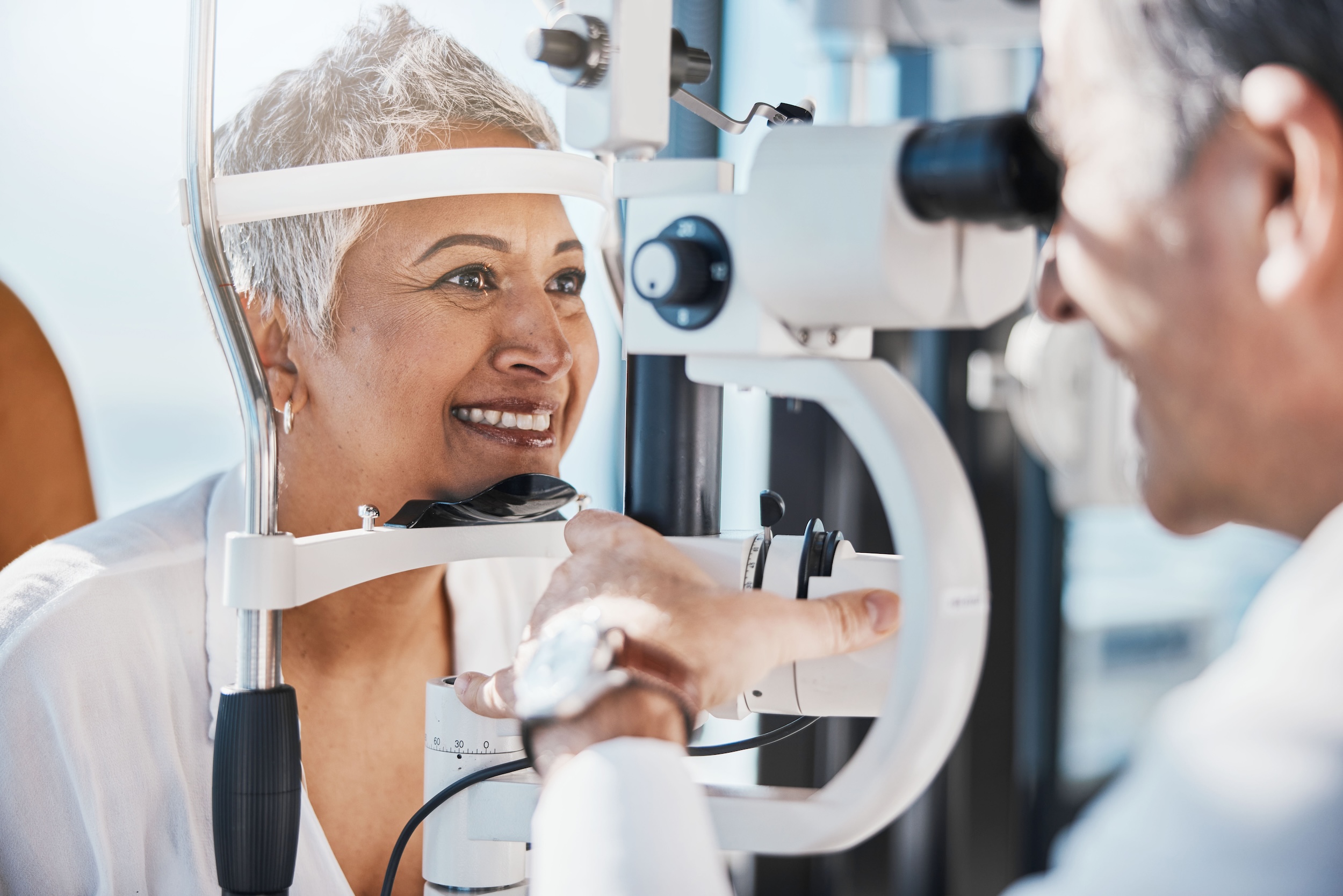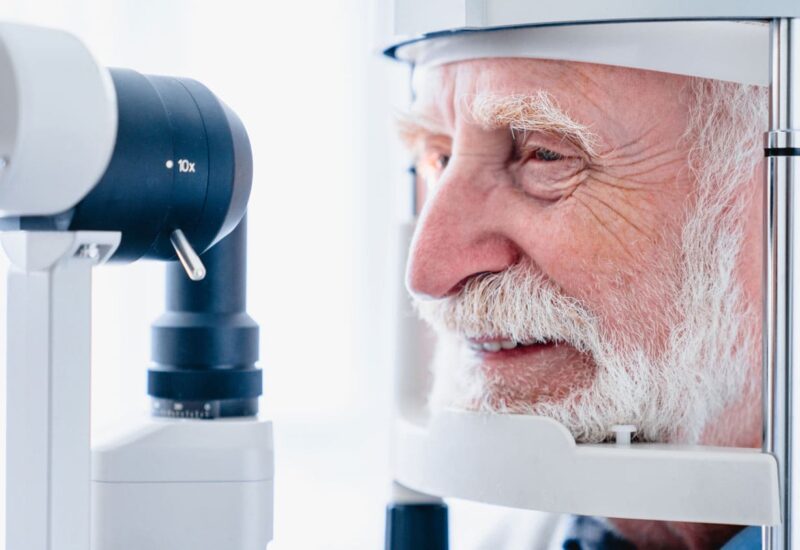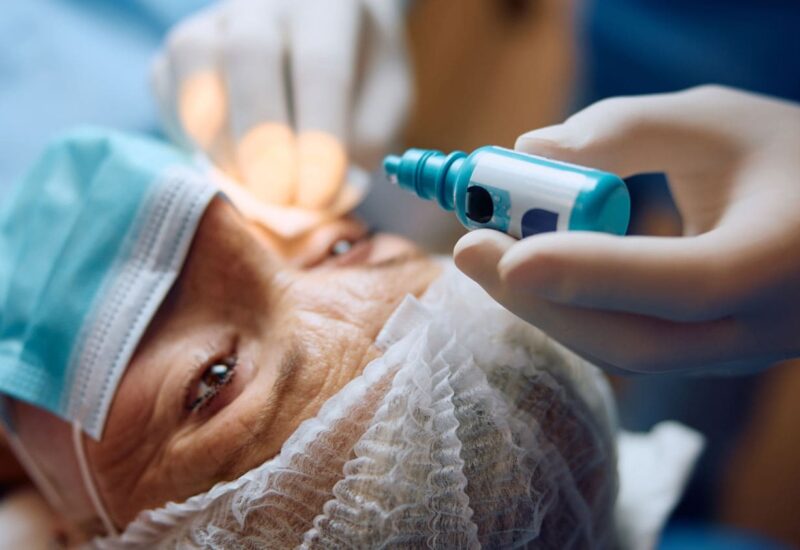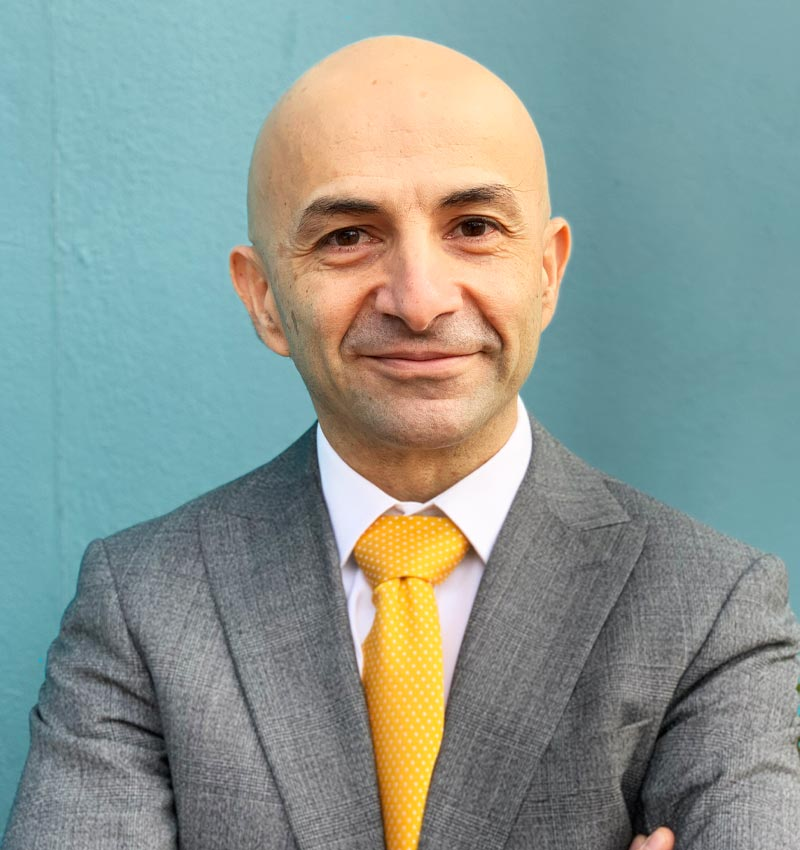Simultaneous Bilateral Cataract Surgery: Is It an Option?
Operating on both eyes on the same day, known as bilateral cataract surgery (ISBCS – Immediately Sequential Bilateral Cataract Surgery), involves performing surgery on one eye immediately after the other.
It is safe and comes with no increased risk of complications compared to treating eyes on separate days. This safety is based on internationally established protocols that are evidence-based and peer-reviewed, and Prof Muhtaseb is meticulous in ensuring these protocols are followed.
However, there remain some clinics out there that give advice that contradicts national guidelines published by the Royal College of Ophthalmologists and the National Institute for Health and Care Excellence (NICE) about bilateral cataract surgery with statements like: “Since it can take up to six weeks for your eye to fully recover after cataract surgery, it is not advised that you have the procedure on both eyes at the same time.”
This is not the case. Bilateral cataract surgery has been established and accepted for many years, with guidelines both the Royal College of Ophthalmologists and NICE having published guidelines in full support, with the following recommendations:
Consider bilateral simultaneous cataract surgery for:
• people who are at low risk of ocular complications during and after surgery, or
• people who need to have general anaesthesia for cataract surgery but for whom general anaesthesia carries an increased risk of complications or distress.
For some patients, this approach may be suitable, particularly if rapid visual rehabilitation is critical. Often bilateral surgery can offer a faster return to normal life, which can be crucial for patients who rely on their sight in their professional lives. Moreover, some patients feel very anxious about eye related procedures, so treating both eyes at the same time can reduce their stress significantly:
“I was quite anxious about the whole procedure so it was a huge reassurance when the Professor offered me the option to have the cataract procedures, performed for both eyes, during one visit and under a general anaesthetic.”
However, for complex cases or for certain clinical reasons it’s often better to allow the first eye a little longer to settle before the second procedure.
How Long Between Cataract Surgery on Each Eye: Prioritising the more affected eye
When both eyes are affected by cataract, it’s crucial to determine which eye requires attention first. Typically, ophthalmologists prioritise the eye with more severe cataract and a cloudier lens. Treating the worst affected eye first results in the greatest improvement in vision, with maximal improvement of vision being achieved when the second eye is treated soon after.
Anticipating the Timeline
So, how long should you wait between cataract surgeries? It’s reasonable to wait only a few days between procedures. This usually gives the first eye sufficient time to heal. During this time, your eye specialist will monitor your recovery to address any potential complications before proceeding with the second surgery.
In some cases, a longer recovery period may be advisable for the first eye. Alternatively, some individuals may choose to delay the second surgery for months or years, depending on how cataracts affect their vision and daily life.
Will My Vision Be Unbalanced Between Surgeries?
One significant advantage of undergoing cataract surgery on both eyes relatively close together is the potential to minimise visual disparities. It’s common to experience a noticeable difference in vision between the two eyes, especially if the first eye has undergone significant improvement. This can lead to discomfort and reduced visual quality.
To address this, your surgeon may recommend temporary corrective measures like glasses or contact lenses. These adjustments can help maintain comfort and functionality until the second surgery is completed.
By having both eyes operated on within a short timeframe, you can reduce the likelihood of experiencing prolonged visual imbalance and expedite your return to optimal vision.
Factors Influencing the Timing of Surgeries
Several personal and medical factors can impact how long to wait between cataract surgery for each eye:
- Lifestyle and Vision Needs:
- If your work or hobbies require precise vision, it’s possible to plan the surgeries to minimise downtime and ensure you can maintain functionality during recovery – it’s crucial to raise these points during your initial consultation, Prof Muhtaseb will take that into account.
- Support System and Caregiving:
- Having a reliable support system can influence how soon you can schedule the second surgery. If assistance is limited, you may need more time between procedures to manage recovery independently.
- Overall Health:
- Managing underlying health conditions and maintaining good overall eye health are essential to ensuring the best outcomes.
Recommendations for Best Outcomes
To ensure the best outcomes for your cataract surgeries, follow these guidelines:
- Adhere to Your Surgeon’s Advice: Your eye specialist will provide tailored recommendations based on your specific condition.
- Follow After Care Guidelines: Proper care, including using prescribed medications and avoiding strenuous activities, promotes healing.
- Attend Post-Op Appointments: Regular check-ups allow your doctor to monitor healing and address concerns.
- Maintain Eye Health: Managing conditions like diabetes can enhance surgical outcomes.
Final Thoughts
The decision of how long to wait between cataract surgeries depends on multiple factors, including your anticipated recovery, lifestyle, personal preference and overall health. Your surgeon’s advice following a thorough interview and assessment should guide your timeline.





